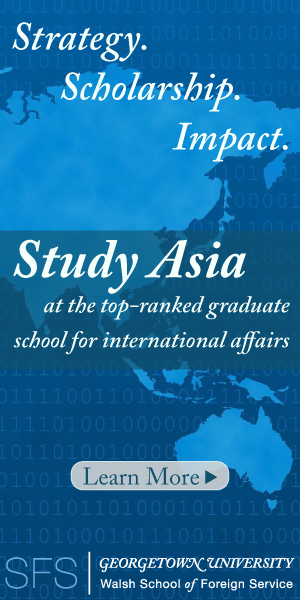| Welcome to the latest issue of Diplomat Brief. This week our top story looks at the eerie symmetry between the political right’s charges of electoral fraud following the latest elections in both South Korea and the U.S. We also have an interview with Colonel David O. Smith, a fellow at the Stimson Center and formerly a senior DIA officer, about prevalent perceptions within the Indian armed forces about Pakistan, China, Kashmir, and other core Indian national security issues. |
| Story of the week |  | POLITICS Before Trump, South Korean Conservatives Also Claimed a ‘Stolen’ ElectionWhat Happened: Defying the consensus that Joe Biden has won the U.S. presidential election, President Donald Trump alleged voter fraud and refused to concede. The episode has remarkable similarities to a South Korean politician’s (similarly unsubstantiated) accusations of voter fraud earlier this year, after mail-in ballots overwhelmingly favored progressive candidates. Our Focus: “The convergence of the narratives on electoral fraud in South Korea and the United States is not a coincidence,” writes Dongwoo Kim, a program manager at Asia Pacific Foundation of Canada, in his analysis. “Different forms of the U.S. far-right discourses and practices have been adopted by their Korean counterparts, from the emergence of fringe media that stands in opposition to the ‘mainstream media’ to the widespread use of Pepe the Frog memes in fringe sites.” What Comes Next: With back-to-back landslide electoral victories, it’s often assumed that South Korea’s progressives have a lock on political power. But the convergence between far-right conspiracy theories in the U.S. and South Korea hints at rising polarization in both countries – which could spell political turmoil for South Korea in the future. Read this story |
| Behind the News | Interview David O. SmithDavid O. Smith, South Asia researcher and former U.S. intelligence official, on Indian military views of the U.S.: “All three groups of Indian officers at the [Defense Services Staff College] DSSC (in all three services) continue to mistrust the United States, which they consider to be neither an ally, a true friend of India, nor a trustworthy security partner.” Read the interview |
| This Week in Asia | Northeast Asia Japan-South Korea Rapprochement in the Cards?Japan-South Korea relations have been on the rocks for over two years, with historical grievances spilling over into modern-day trade disputes. But with the Suga administration taking the reins in Tokyo, there are some signs of a thaw. A recent meeting between Prime Minister Suga and a top South Korea official this week further raised those hopes. Find out more | Southeast Asia ASEAN Summitry Kicks OffIt’s that ASEAN time of year. During November 11-15, leaders from the 10-nation Southeast Asian bloc will meet by video link for the 37th ASEAN Summit and its galaxy of assorted meetings and talk-shops. Expect COVID-19, the Rohingya crisis, and the South China Sea disputes to feature prominently in deliberations. One notable absentee will be Cambodia’s Prime Minister Hun Sen, who is in self-quarantine due to coronavirus fears. Find out more | South Asia Festival Season in India as COVID-19 LoomsAs North India celebrates Diwali, one of the largest Hindu festivals of the year, this weekend the combined effect of severe seasonal air pollution as well as lax social distancing norms might lead to a sharp increase in COVID-19 cases in Delhi and elsewhere. Find out more | Central Asia The Taliban Look Toward the Next U.S. AdministrationAs the U.S. election drama continues, many are already looking ahead to a Joe Biden administration – even the Taliban, which this week urged the next U.S. president to stick to the February deal it settled with Washington. Find out more |
| Visualizing APAC | SOCIETY CCP’s Global Media InfluenceThis screenshot (via @JusticeKazzy) of the Chinese-developed game “Genshin Impact” shows how the phrase “Hong Kong” is censored from the in-game chat function. That’s just one example of China’s growing clout in both traditional media and broader entertainment. See the full picture |  |
| Word of the Week | SOCIETY 选举xuǎnjǔ, meaning “election” in Chinese: China may not have national elections, but the term was all over social media this past week, as Chinese netizens and state media alike closely watched the results trickle in from the U.S. presidential race. Find out more |
|  |






![[object Object]](https://thediplomat.com/diplomat-brief/images/magazine/issue_72.jpg)